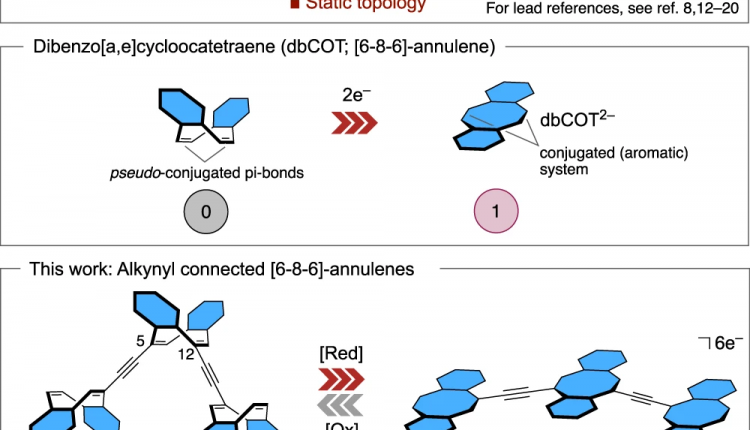Lund University researchers developed a simple, single hydrocarbon molecule with a logic gate function, paving the way for electric components such as transistors on a subatomic scale.
With transistors, smaller means faster and better energy efficiency. The researchers developed a simple hydrocarbon molecule that changes its form and goes from insulating to conductive when exposed to electric potential. The formula was to design an anti-aromatic ring in a molecule to make it robust and able to receive and relay electrons.
Organic molecules often consist of aromatic benzene rings—flat rings made up of six carbon atoms, but the molecules do not change properties or shape if subjected to electric potential. Researchers, therefore, selected hydrocarbons made up of rings with eight carbon atoms that are anti-aromatic and bent into a tub-shape. If two electrons are injected into such a molecule, it flattens and goes from insulating to conducting – a function similar to that of a transistor switching from 0 to 1.
The discovery means researchers can now think about how to develop both electrical switches and new mechanical systems at the single-molecule level using anti-aromatic hydrocarbons.
The results are published in Nature Communications.

